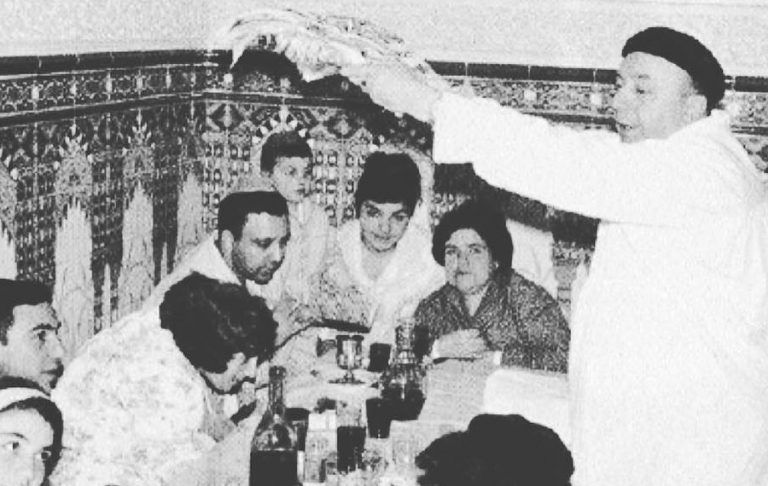Passover is here, and I am triggered. Every Ashkenazi Jew gets a little Sephardic-envy this time of year thinking about all the rice our fellow Jews will be eating while we suffer through a kitniyot lockdown. Honestly, though, we Eastern European Jews envy Sephardim all year for their cuisine. I know some have tried to modernize gefilte fish and make it retro-chic, but it hasn’t worked and can never compare to tahdig or kibbeh. Sephardim clean our clocks when it comes to the menu.
But Sephardic-envy isn’t just a culinary condition; it suggests an admiration for some important social, religious and political values these admittedly non-homogenous groups share. My two children attend a school with a sizable Sephardic population that simply didn’t exist in our neighborhood 35 years ago when I attended the very same school. The gifts they have brought to our Ashkenazi world are significant.
I find the religious tone of the Sephardic communities I encounter so appealing. Like everyone else, some Sephardim are personally very observant, and others not, but publicly, they all pay great respect to tradition and revere their rabbis and religious institutions. Thousands of years of communal history and practice carry a weight that modern sensibilities dare not openly undermine to suit individual preferences. This kind of honor paid to the past seems old-fashioned in today’s American Jewish landscape, so determined to “reimagine” everything. Sephardim are old school when it comes to their Judaism, and I love it.
This traditional approach to religious Jewish life shouldn’t be mistaken for dry ceremony or lack of imagination, however. Anyone who has been to a Persian Shabbat dinner or a Syrian Jewish wedding knows that celebration is a Sephardic superpower. These people know how to have fun—how to enjoy their Judaism with their families and communities in ways that are magnetic, authentic and enviable.
Community is critical, too. This summer, after months of lockdowns, I spoke with a Syrian friend who told me about the monies being raised “by the community” to support those whose businesses were adversely affected. To her, this was hardly worth mentioning because it was so obviously what was expected among members of a group who care for one another. To me, it was an underappreciated benefit of belonging. Belonging, she told me had its drawbacks as well, but we could both agree that the pros outweigh the cons.
But more than anything, I envy in these communities something that I used to take for granted in Ashkenazi American Jewish life just a few decades ago: unapologetic pride in Israel. For Sephardic Jews, this is visceral and non-negotiable. My Sephardic friends ask me with genuine curiosity how their fellow Jews can support the group Students for Justice in Palestine or defend political activist Linda Sarsour with her decidedly anti-Semitic ties. They don’t understand the impulse to self-immolate or to appease. They believe in themselves, their people and their country. Perhaps it is because many are first-generation refugees, or perhaps it’s because they haven’t been marinated in bad ideas for three generations on American college campuses. Whatever the reason, they possess a communal spirit I haven’t seen on widespread display in American Jewish life for a long time, save in corners of the Orthodox and Russian Jewish worlds. As a percentage of Jews in America Sephardim are small in number but mighty in the lessons, they can teach the American Jewish majority about pride and purpose.
We Ashkenazim are a stunningly accomplished and interesting bunch in our own right, and some of the attributes I ascribe to Sephardim surely apply to segments of our ranks, too. But as a whole, Sephardim seem to be bursting at the seams with vibrant Jewish energy, joyous religious and communal passion, family unity and a socio-political outlook that make me want to convert. If someone would just create the process and sweeten it with a Lebanese labneh ceremony, Ashkenazim like me would be banging down the doors.
Rebecca Sugar is a freelance writer and philanthropic consultant in New York.


























